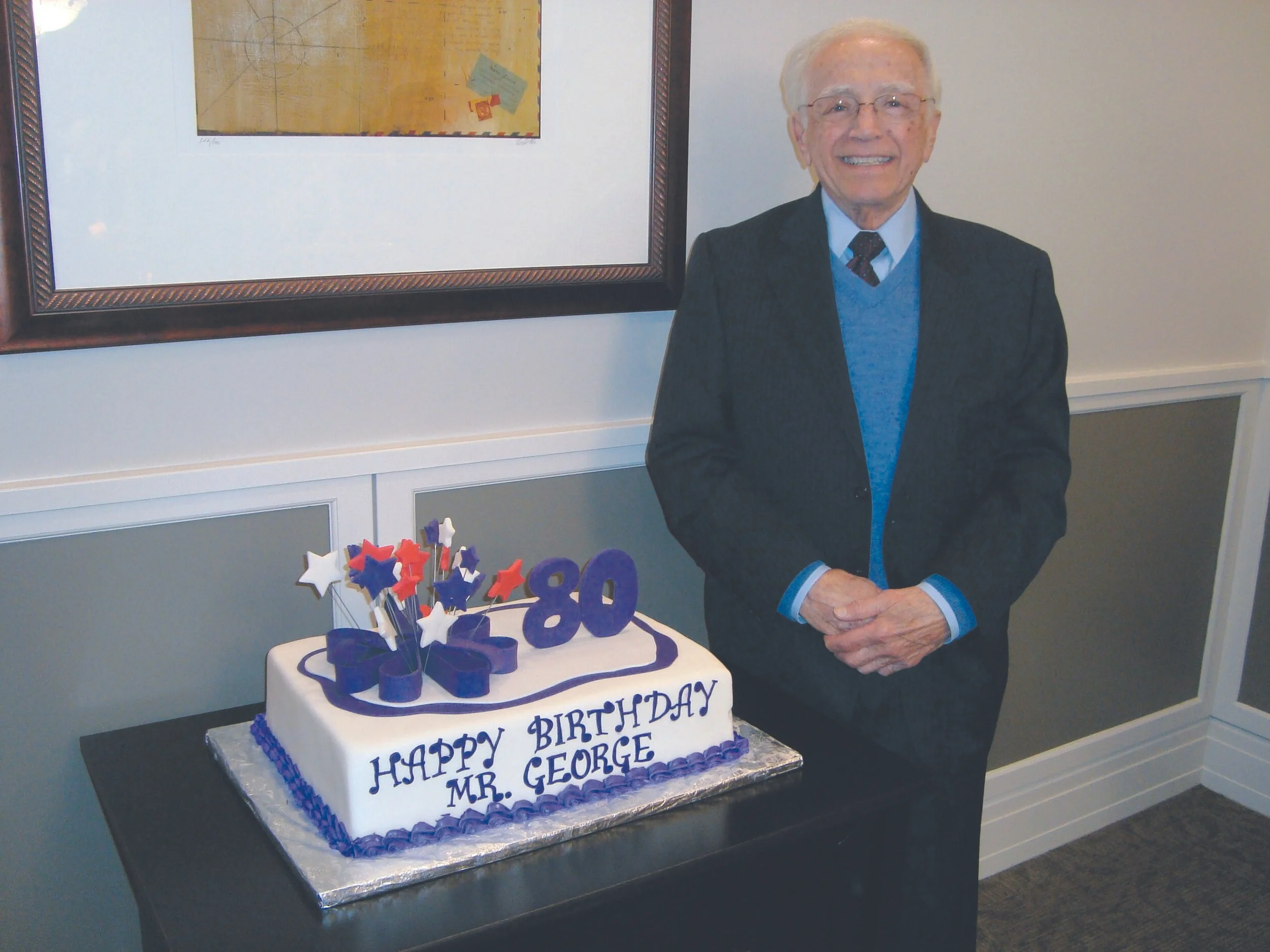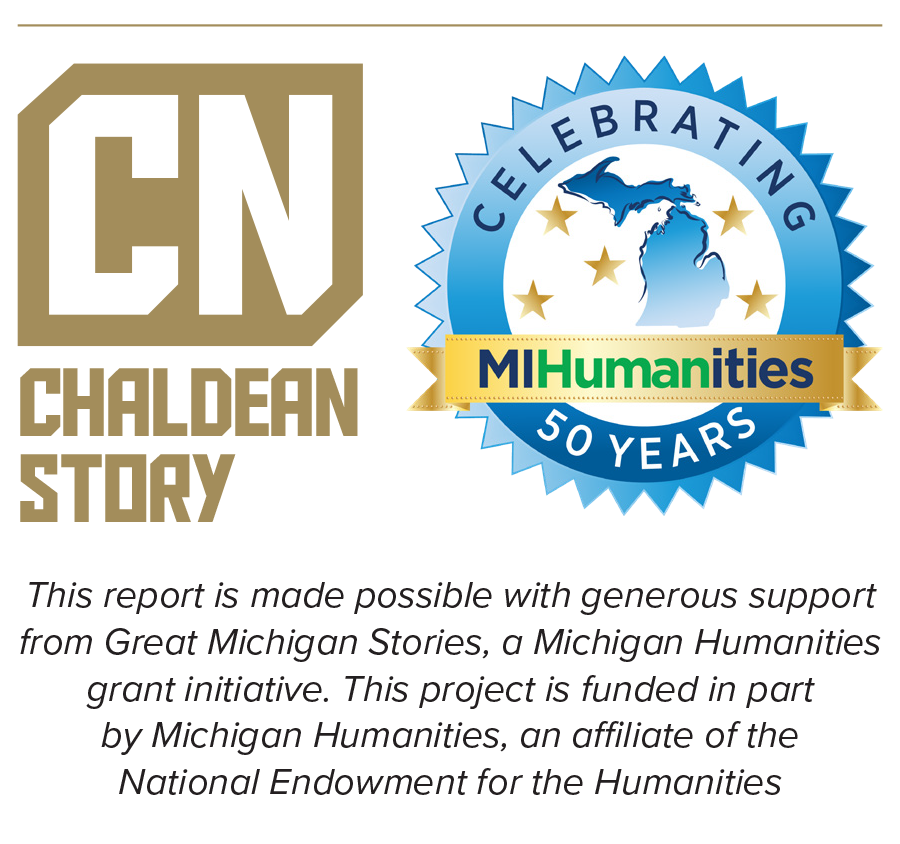From Mesopotamia to the Motor City
New ventures in a new land
Saad Abbo
By Cal Abbo
Part 3
The Chaldeans’ journey to Detroit is a story constantly being rewritten as the community grows and evolves. It would be relatively simple to characterize Chaldeans in the early 1900s; their differences from other immigrants left them with few options besides the assembly line, menial labor, or starting their own farmers market stalls and eventually small storefronts.
As Chaldeans found the growing need for integration into their new community as well as a certain independence from it, they realized that the neighborhood store business was perfect for them. Intimately familiar with farming and agriculture, they found synergy in buying and selling produce. In addition, their biggest advantage was the community trust established and maintained by faith and family, which they used to learn from and support one another in times of need.
As time went on and new generations were born, however, they became acculturated and Americanized. Young, enterprising Chaldeans created business ideas that have survived decades, and their dedication to service and their community has rendered tremendous success.
In addition, Chaldean immigrant families tend to act like others from different communities, emphasizing a complete education and pushing their children to become professionals in some high-earning field. Therefore, Chaldeans in Michigan have become doctors, lawyers, judges, engineers, architects, salesmen, managers, restaurant operators, athletes, and excel many more professions, as the Chaldean News highlights on a daily basis.
This kind of integration is important for any immigrant group to become a productive and respected part of society. By expanding their scope, Chaldeans can interact with all kinds of people while maintaining the close-knit ties to their community that brought them this far.
In some cases, the most successful businesses resulted only from the hard work and dedication to service that Chaldeans are known for.
Mike George
Mike George’s Melody Farms
Mike George is one of the legendary Chaldean pioneers, and for good reason. He built a long record of service and support for his community while also demonstrating incredible business acumen.
Scott George, one of Mike’s sons, described how his father got started in his famed career. “My grandfather owned a meat market in Detroit,” he said. “My father started delivering milk out of the market. They bought a van for $100 and just went door-to-door.”
Scott’s uncle and his father, Mike, started Tom George Dairy and Sons. As years passed, the business grew, and Mike bought his own dairy company. Eventually, even while Mike was still running it, Melody Farms became the largest independent dairy in the Midwest with 450 employees.
In a 2003 interview with the Chaldean News, Mike George commented on how his business got its name. “We were distributing milk through Wilson Dairy at the time,” recalled George. “It was homogenized milk. There was no 2 percent or low-fat at the time. We added vitamin D to the milk and as a result we had the highest butterfat milk of all the competitors. The more fat, the smoother the product.” In 1962, the name changed to Mello-D to compliment the smooth texture and the vitamin D, eventually becoming Melody Farms.
Saad Abbo’s U.S. Ice
Saad Abbo’s family came to America in 1972, when he was 10 years old. For the next ten years of his life, his family operated that store. One fateful summer day in 1984, which Abbo remembers as the hottest day in summer, the ice delivery service they used failed to deliver on a Thursday night, not showing up until Monday night.
“My father was so pissed,” Abbo said. “When a customer walks in, they come and buy groceries and pop and other stuff. If you don’t have all the items, they go to another store. We had a few customers just leave the buggy and walk away.”
In his anger, Abbo’s father suggested the family start their own ice company. The rest is history.
“My father was aggressive,” Abbo added. “We opened up the ice company and put a plant together. It was producing 10,000 pounds of ice every day. At the time, we thought that was a lot.”
Abbo and his brother bought a few trucks. After the first year, they had about 50 customers. Not bad for a startup, but it wasn’t something to start a career over. The following year, that number tripled to 150. After that, they really believed they could succeed in this business. So they sold the store.
“The whole idea behind it is service,” Abbo said. “We built this thing around the idea that you don’t delay a customer. They call, and we were there every time.”
In the beginning, it was the Chaldeans who helped Abbo and his family succeed. His high level of service and ability to keep prices down was appealing to the large community of store owners. Eventually word spread about U.S. Ice, and they deservedly got many more clients. A little over a year ago, Abbo decided to retire, and sold his company to Home City Ice.
“We kept the price down in Michigan compared to every other state in the country,” Abbo said. “Since we sold the business one year ago, the prices have almost doubled from what they used to be, which is actually a normal price compared to the rest of the country. And the service is not there.”
Abbo won the Chaldean Chamber of Commerce Businessperson of the Year Award in 2014 and was last year inducted into the Great Lakes Ice Association Hall of Fame.
He attributes his success to God. “In the Chaldean community, there’s family and God,” he said. “The way we believe in God, no other community is like that. Church is the center of everything.”



